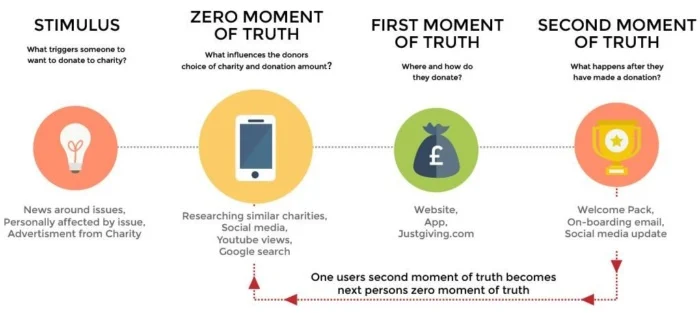
Are you looking to grow your real estate business quickly and efficiently? Look no further than growth hacking. This buzzword has become popular in recent years, and for good reason. Growth hacking involves using innovative and cost-effective strategies to rapidly grow your business. In this article, we’ll explore 45 top growth hacking strategies for real estate that you can start implementing today.
Understanding Growth Hacking in Real Estate
What is Growth Hacking?
Growth hacking is a term coined by Sean Ellis in 2010. The basic premise is to rapidly grow a company by using experimental techniques that are scalable. The main difference between traditional marketing and growth hacking is that growth hacking is focused on one thing: growth. That means that every strategy is geared towards acquiring more customers, expanding your reach, and ultimately increasing revenue.
One of the key aspects of growth hacking is testing and experimentation. By constantly testing different strategies and measuring their effectiveness, you can quickly identify what works and what doesn’t. This allows you to optimize your efforts and achieve maximum growth in the shortest amount of time possible.
Why Growth Hacking is Important for Real Estate
The real estate industry is highly competitive, with new agents and agencies popping up every day. To stand out from the crowd, you need to get creative and use unconventional strategies to attract clients. By utilizing growth hacking techniques, you can quickly and efficiently grow your business, increase your revenue, and stay ahead of the competition.
One growth hacking strategy that has been successful in the real estate industry is leveraging social media. With the majority of homebuyers and sellers using social media to research properties and agents, it’s essential to have a strong presence on these platforms. By creating engaging content, running targeted ads, and building a community of followers, you can increase your reach and attract more clients.
Another growth hacking technique is to leverage data to identify high-potential leads. By analyzing data on past clients and their behavior, you can identify patterns and preferences that can help you target similar individuals in the future. This allows you to focus your efforts on the most promising leads, increasing your chances of converting them into clients.
In addition to these strategies, there are many other growth hacking techniques that can be applied to the real estate industry. The key is to be creative, experimental, and always looking for new ways to grow your business.
Building a Strong Online Presence
Building a strong online presence is essential for any real estate business looking to grow and succeed in today’s digital age. With so many potential clients searching online for their next home, it’s important to have a website that not only looks great but is also optimized for growth.
Optimizing Your Real Estate Website
Your website is the online face of your business, and it needs to be optimized for growth. That means having a modern, responsive design that’s easy to navigate and visually appealing. It also means optimizing your website for search engines by using relevant keywords and high-quality content.
But that’s just the beginning. To really growth hack your website, you need to get creative. For example, you could add a live chat feature to help visitors engage with your staff in real-time. This can help build trust and establish a personal connection with potential clients. Or you could offer a free home valuation tool to entice visitors to provide their contact information. This can help you build a list of potential leads that you can follow up with later.
Leveraging Social Media Platforms
Social media is one of the most powerful tools in a growth hacker’s toolbox. By leveraging platforms like Facebook, Instagram, and Twitter, you can quickly and easily reach a large audience. But it’s not just about posting updates and hoping for the best. You need to be strategic about your social media presence.
For example, you could create a Facebook group for your local community and offer tips and insights about the real estate market. This can help establish you as a thought leader in your local market and build trust with potential clients. You could also invest in social media advertising to expand your reach and attract more clients. By targeting your ads to specific demographics, you can ensure that you’re reaching the right people with the right message.
Utilizing SEO Techniques

Search engine optimization (SEO) is another crucial component of growth hacking. By optimizing your website for search engines, you can attract more organic traffic and generate more leads. That means focusing on relevant keywords, using high-quality content, and optimizing your website structure.
But don’t stop there. You can also use SEO techniques to optimize your social media profiles, local business listings, and online reviews. By optimizing your entire online presence, you can ensure that you’re easily discoverable by potential clients. This can help you build a strong brand presence and establish yourself as a trusted authority in your local market.
In conclusion, building a strong online presence is essential for any real estate business looking to grow and succeed in today’s digital age. By optimizing your website, leveraging social media platforms, and utilizing SEO techniques, you can attract more leads, build trust with potential clients, and establish yourself as a thought leader in your local market.
Content Marketing Strategies
Creating Valuable Blog Content
Blogging is one of the most effective content marketing strategies for real estate agents. By providing valuable insights and advice about the real estate market, you can attract potential clients and build your reputation as an expert in your field.
But it’s not just about writing generic posts and hoping for the best. You need to be strategic about your blogging. That means focusing on relevant topics that your target audience cares about, using eye-catching headlines, and promoting your content on social media.
Developing Engaging Video Content
Video is quickly becoming one of the most powerful marketing tools available. By creating engaging video content, you can attract new clients and build trust with your existing clients. There are many different types of video content that you can create, including property tours, client testimonials, and educational videos about the home buying process.
But creating video content can be expensive and time-consuming. To really growth hack your video marketing, consider partnering with a local videographer or investing in a smartphone gimbal to create high-quality videos without breaking the bank.
Crafting Informative Infographics
Infographics are another powerful tool in a growth hacker’s toolbox. By presenting information in a visually appealing and easy-to-understand format, you can attract potential clients and establish your authority in the industry.
But creating infographics can be challenging if you’re not a designer. To simplify the process, consider using online tools like Canva or Piktochart to create professional-looking infographics without any design skills.
Email Marketing for Real Estate
Building a Quality Email List
Email marketing is one of the most effective ways to nurture leads and generate new business. But before you can start sending emails, you need to build a quality email list. That means collecting email addresses from your website, social media profiles, and in-person interactions.
But don’t just add anyone to your email list. Focus on attracting high-quality leads by offering valuable resources like e-books, whitepapers, and in-depth guides.

Crafting Effective Email Campaigns
Once you have a quality email list, it’s time to start sending targeted campaigns. But don’t make the mistake of sending generic emails to your entire list. Instead, focus on personalization and segmentation to ensure that your emails are relevant and engaging.
For example, you could send personalized property listings to leads who have shown interest in specific neighborhoods. Or you could send educational content to clients who are still in the early stages of the buying process.
Personalizing Your Email Communications
Finally, it’s important to personalize your email communications to build trust and establish relationships with your clients. That means using their names in the subject line, sending birthday and anniversary emails, and following up with leads after in-person meetings.
By following these growth hacking strategies for real estate, you can quickly and efficiently grow your business and stay ahead of the competition. So what are you waiting for? Start implementing these techniques today!
